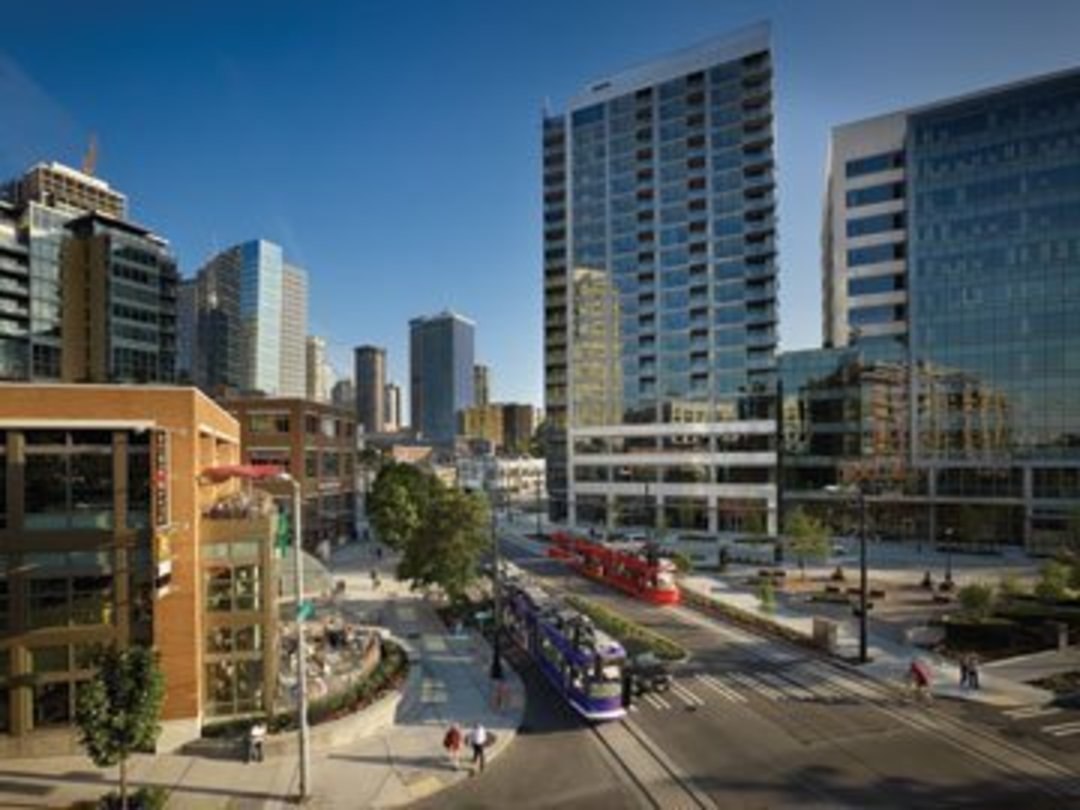Proposals to Increase Affordable Housing Requirement in SLU Move Forward

Image via DiscoverSLU.com.
A proposal to require developers to pay more in exchange for taller, denser buildings in South Lake Union is moving forward, after two reports showed that developers find it more profitable to write a check to the city's office of housing instead of building affordable housing on site.
The program, called "incentive zoning," allows developers to build taller, denser commercial or residential buildings if they either build "workforce" housing on site—that is, housing affordable to people making up to 80 percent of the area's median income, or $63,000 for a family of four—or pay into an affordable housing fund at the city, the so-called "pay-in-lieu" option.
So far, proponents of raising the payment in lieu argue, developers have universally opted to pay into the fund, finding it more profitable than building actual affordable housing. "They're mostly choosing to write the check, becuase it costs them much less to write that check," city council member Mike O'Brien told me earlier this month.
Today's reports confirm that conclusion. The first, by Spectrum Development Services, concludes that "the pay-in-lieu fees are currently set too low to expect developers to ever choose to build affordable housing themselves, and that they would always profit more by choosing the pay-in-lieu option."
Moreover, under the current payment-in-lieu requirements, the city (leveraging other funding sources, like the housing levy and tax exemptions) would only be able to build about 450 units of workforce housing by 2031—far short of the 5,500 units the city has adopted as its goal for workforce housing produced by development in South Lake Union. (Excluding the 11,74 workforce units that already exist in South Lake Union, that goal goes down to 4,226.)
The second report, by the Community Attribute consulting firm, concluded that even if developers did choose, universally, to build in South Lake Union instead of paying into the affordable housing fund, they wouldn't produce enough workforce housing to equal the current (and already paltry) 37 percent of Seattle workers who actually live in the city. (Richard Conlin, who opposes changing the incentive zoning provisions, suggested that 37 percent might actually be a tall order, given that "there are so many newer units" in South Lake Union and the neighborhood is much more "desirable" than other areas because of its proximity to downtown).
Although council members haven't proposed a solution to the latter problem, several are floating proposals to address the latter; all would raise the fee-in-lieu of building affordable housing to a level that might make it more attractive for developers to actually build on site.
Council member Tim Burgess has proposed legislation that would increase the fee-in-lieu of building housing by about 20 percent; at yesterday's meeting, he said, "We know we're not going to meet our goal by incentive zoning alone," and pointed out that city housing dollars are often paired with other funds that include restrictions that require them, for example, to only fund low-income housing, as opposed to workforce housing for low-to-middle-income workers. "We want to make sure we don't have unintended consequences," Burgess said.
O'Brien, who, along with Nick Licata and Tom Rasmussen, was among the first to raise the idea of increasing the fee-in-lieu, says that while there are "a bunch of things that need to happen" with incentive zoning, "I'm confident that part of the solution is that when a developer is building a new residential building, a handful of the units should be affordable to someone making a workforce salary. ... I believe that the private market is completely capable of building workforce housing. You don't need on-site services; these are people who have jobs that just don't pay a lot."
The South Lake Union committee will take up Burgess' proposal next week, and could vote on some version of a proposal to increase the payment in lieu as early as April 1.




